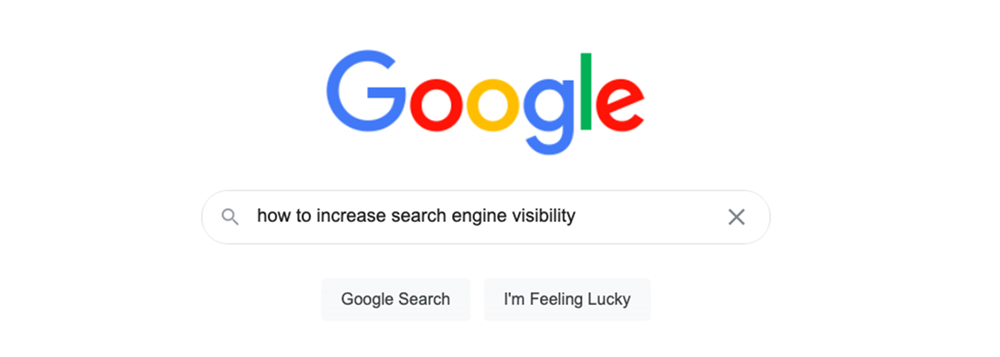Want to increase your website’s search visibility score? Here are five significant strategies you can implement to optimize your search ranking and generate organic traffic to your site.
 1. Make an Impact by Creating Perfect Title Tags
1. Make an Impact by Creating Perfect Title Tags
Title tags are a seemingly small part, but you should focus on making them the best they can be. They have a big impact on search visibility and are an important factor in SEO strategy.
Giving attention to your title tags is key, as this is usually the first thing everyone sees. It’s a chance for your page to make an impression on viewers and (hopefully) compel them to visit your website. Your title tag should let searchers know that they’ve found a page that is relevant to the purpose of their search, leading them to click through to your website.
Make sure your title tag is relevant. The last thing anyone wants is users visiting their site only to quickly realize that it’s not what they were looking for and leaving immediately. Think about when you search for something. You don’t like looking too hard and hitting dead ends. Clicking on a page and realizing it’s not what you need is frustrating. Nobody wants to waste their time by clicking on a page that isn’t relevant to their needs. Even if they do click through, users won’t take the time to click around to figure out if you can give them what they want. They’ll simply go back and choose another site from the search results page, one that they’re certain offers them exactly what they are looking for.
When creating title tags, you must appeal not only to search engines but also to people. The challenging part is that you have to write something that search engines will like, but that will also make real people want to come to your site.
 2. Make Your Meta Description Matter
2. Make Your Meta Description Matter
Title tags are very significant as a path to your website, but if someone feels that they need more information before clicking through, they’ll read your meta description. The meta description is your second chance to persuade them to click on your site, and it should be relevant and concise.
Aim for a straightforward and informative description, one that’s not too pitchy. Use the space wisely, avoiding wasting characters with greetings like “Welcome!” Since your description in Google SERP can’t be very long without being cut off, use specific keywords. Your meta description is what could win over people and lead them to click through and explore your website.
3. Be on the Ball with Your Meta Tags
A less challenging strategy for optimizing your search visibility is creating meta tags. To make search engines happy, use a suitable meta tag in your page source code. These must describe the content of your pages and should tell search engines what your page is for. The right meta tag is key for search engines to connect users to your website based on what keywords they type in Google’s search bar.
4. Spend Time on Your H1 Tags
While title tags don’t show up on a website, H1 tags do appear on the page (but not in search engines). Your H1 tag is the introductory blurb on your page and should reassure users that your site measures their intended objective.
H1 tags are the most important tags and have a big impact on SEO. If your H1 tags are effective, they’re able to convince users to stay on the page, increasing your session duration and decreasing bounce rate. These factors are both important in tracking user experience on your site, and they have a great effect on your search rankings.
Your H1 tags should never consist of vague, general phrases such as, “The results you deserve”, “Getting you where you want to be”, or “Local, True and All About You”. Google won’t be able to do much with these kinds of tags because they don’t tell the algorithm anything about what your website does. State relevant information in H1 tags to help Google connect you to searches that make sense for your website.
5. Keywords, Keywords, Keywords
Keywords are incredibly important for search engine visibility. To increase SEO, you need to implement the perfect keyword into your meta tags, title tags, and description. Google requires keywords to determine what a website is about and who it’s for.

Don’t go for extremely popular keywords. You don’t want your website to get lost in all those results because users are unlikely to find it on the fifth page of Google’s SERP. Use keywords that get your target audience interested in your page. Use tail keywords, too. Incorporating tail keywords can help you stand out in searches and surpass your competition, increasing your organic traffic.
If you have keywords in your description that matches the keywords in a user’s search query, these words appear on the search results page in bold letters. Keywords go a long way in helping you stand out and inform searchers that you have what they need on your site.
When using these strategies as part of your SEO efforts, always be mindful about what Google likes. Google cares most about users. As long as you focus on the same thing that Google algorithms are based on – user experience – your website will be efficient and optimized.


